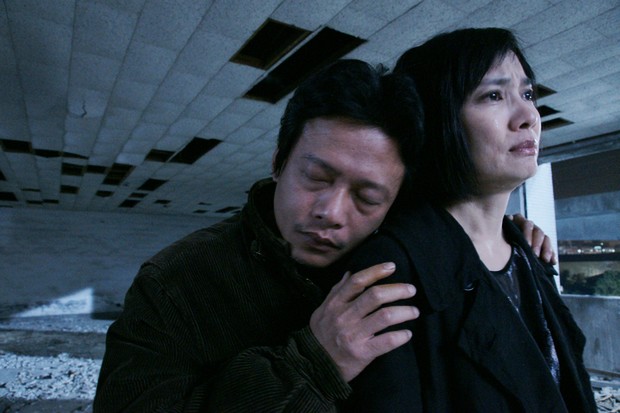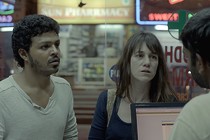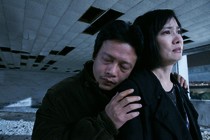Stray Dogs: an apologia for slowness
- Tsai Ming-Liang ends his career with a film making full use of the possibilities offered by digital techniques. The movie is in the running for the Golden Lion in Venice

“I can't make films for the system. Cinema as an object of consumption limits my creativity. I feel disorientated by the speed imposed on us. For me, slowness is a technique, an instrument helping me to find a path through this disorientation". As we might well have expected, Tsai Ming-Liang has split the press just as much as the public attending the 70th Venice Mostra with what he hopes to be his last feature film, Stray Dogs [+see also:
trailer
film profile], in the running for the Golden Lion, which the Taiwanese director of Malaysian origin already won in 1994 for Viva el amor.
The first shot in the film already announces the rhythm and tone adopted by the director: in a bedroom with dark walls stained with damp, a woman sits on a bed in which a little boy and little girl are sleeping peacefully, slowly combing her hair. She pauses for an instant, then continues. The scene is a fixed shot that lasts five minutes, without any dialogue, but with constant snoring as the only background noise.
The plot (a term that Tsai Ming-Liang finds too heavy) is as follows: two children live as best they can with the little money their father earns as a bill-poster, come rain, come shine, feeding themselves on samples of food products handed out in shopping malls. In one of these malls, a female employee becomes fond of the little girl and ends up by saving the children from a suicide-trip on which their father wants to take them.
The employee is played by an actress different from the one we see in the first scene and the one who tries to form a family in the second half of the movie, though the director suggests that these three women are playing the same character. One of them, Lu Yi-ching, declared at the press conference: "I felt as if I was working with a painter, and that we, the actors, were his colours". In fact, more than acting parts in a film without any real story or narration, the actors offer the audience big-screen performances. Lee Kang-Sheng, Ming-Liang's fetish actor, makes moving efforts before a camera which, thanks to the use of digital techniques, continues to film indefinitely. In this respect, the actor explained that: "Working with Tsai Ming-Liang is a kind of torture: you suffer a great deal but, at the same time, I have to admit that I really began to live like the character and to feel, like him, the burden of life weighing on my shoulders".
The miserable life of these "stray dogs" is nevertheless characterized by a kind of freedom which is usually unimaginable in the metropolis of Taipei: the characters eat and urinate in the grass or gravel, they have nothing but free time on their hands, and are subjected to no rules. In an endless and memorable final scene, Tsai Ming-Liang recalls that it is on these walls stripped of plaster which are home to the drop-outs and out-casts of our society that one finds his unique and mysterious horizon.
Stray Dogs is coproduced by the Taiwanese company Homegreen Films and JBA of France. The film's international sales are handled by UDI.
(Translated from Spanish)
Did you enjoy reading this article? Please subscribe to our newsletter to receive more stories like this directly in your inbox.


























